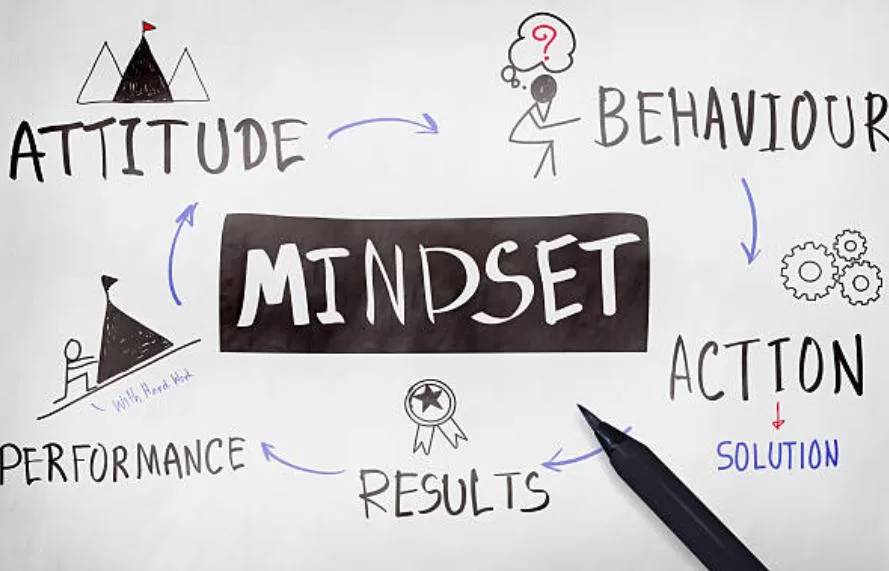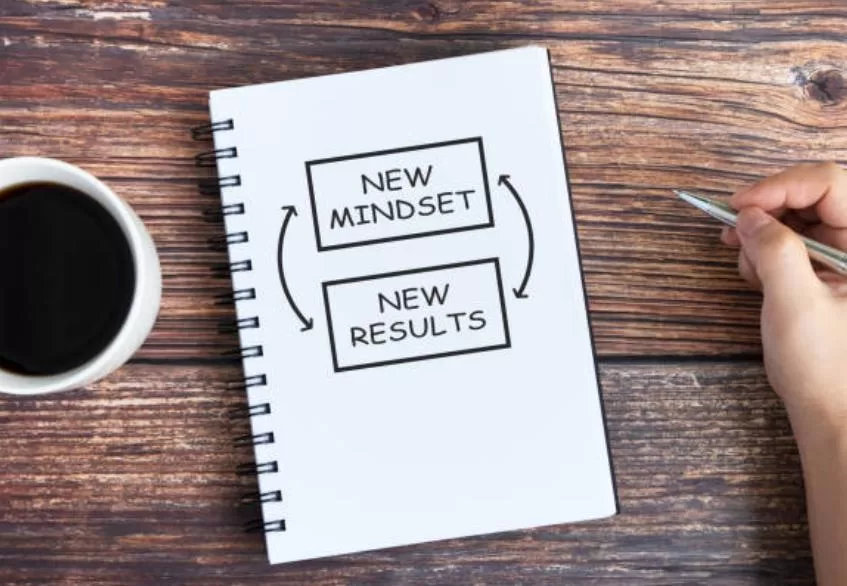How Does Mindset Affect Behavior?

Selfpause Affirmation App
Download the app to get 1,000’s of affirmation meditations and everything you need to write, record and listen to your own.
Our attitudes of ourselves and our capacities can have a big impact on how we behave. The term cognitive-behavioral theory refers to this relationship between attitude and behavior. According to this hypothesis, our cognitions, or thoughts, affect how we act and feel.

Positive conduct can result from having a growth mindset, which is the conviction that aptitude and intelligence can be improved through work and education. People that have a development mentality are typically more tenacious in the face of difficulties and failures and are more likely to succeed. Additionally, they are more receptive to criticism and less inclined to give up when faced with challenges. This may motivate them to act persistently and consistently in order to accomplish their objective.
On the other side, a fixed mindset, which maintains that skills and intelligence are unchangeable fixed attributes, might result in undesirable conduct. Due to their belief that their skills cannot be improved, people with fixed mindsets may shy away from challenges and give up easily when faced with difficulties. Additionally, they could be less receptive to criticism and more inclined to act defensively.
Our emotions are also influenced by our thinking. Bad emotions like anxiety, depression, and tension can be brought on by negative thoughts. Positive feelings like happiness and contentment can be induced by thinking positively. People that have a growth mindset frequently view the world more favorably and experience more favorable feelings, which can result in more favorable action.

Self-fulfilling prophesies are another way mentality can influence behavior. At this point, we act in a way that supports our views about who we are and what we are capable of. For instance, if we think we’re bad at arithmetic, we might steer clear of math scenarios and classes, which can help us believe we’re bad at math. On the other side, if we think we can get better at math, we might look for math lessons and chances to do so. This can help us feel more confident that we can.
Motivation is also impacted by mindset. Those that have a growth mindset tend to be more driven and committed to their objectives since they think they can improve their skills. They are more likely to work hard and keep going in the face of challenges. On the other hand, those who have a fixed mindset may lack motivation and get disengaged from their objectives because they think their skills are unchangeable and fixed.
In conclusion, mentality is a critical factor in determining our actions. A fixed mindset can result in bad behaviors like avoidance and giving up quickly, whereas a development mindset can result in positive behaviors like perseverance and resilience. Additionally, our emotions and motivation are influenced by our thoughts and beliefs, which in turn affects how we act. By being aware of the link between mentality and behavior, we may try to cultivate a growth mindset, which will subsequently enhance our behavior and general wellbeing.
